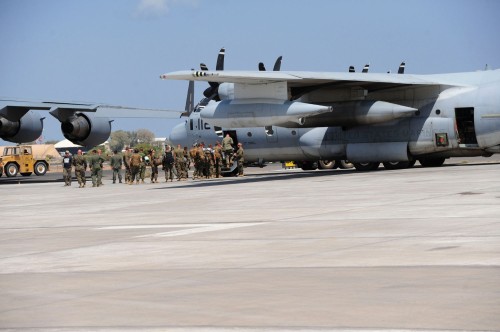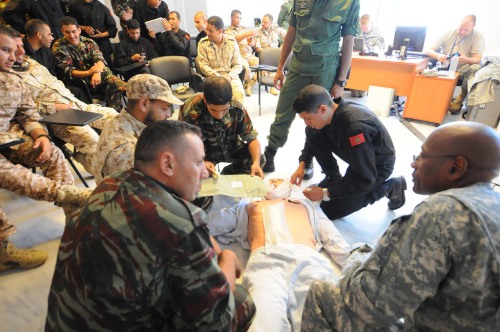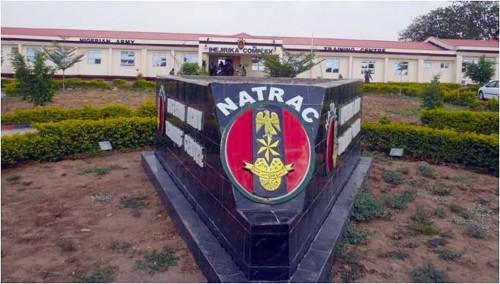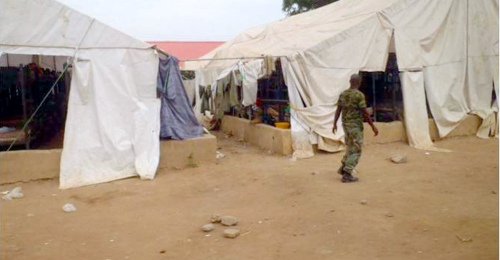Libya appears to be teetering on the brink of a new civil war three years after an international intervention helped rebels topple Moammar Gadhafi. Since then, the country’s new authorities have been unable assert its authority and demobilize various independent militias. These armed groups have openly challenged the government on numerous occasions, kidnapping domestic and foreign officials and attempting to sell oil from their own personal fiefdoms.

Members of Special Purpose Marine Air Ground Task Force – Crisis Response board a KC-130J at Camp Lemonnier, Djibouti, as they prepare to return to their base in Spain on 1 March 2014.
The US sent 200 Marines from Special Purpose Marine Air Ground Task Force – Crisis Response (SPMAGTF-CR) to Italy last week as this recent crisis began to unfold. Today it was reported that additional aircraft were deployed to bolster the force at Naval Air Station Sigonella. The Marines could use their MV-22B Ospreys and KC-130J Hercules aircraft to evacuate Americans from the embassy in Tripoli and elsewhere in the country. SPMAGTF-CR was created last year after the infamous attack on the US consulate in Benghazi in 2012. The Marines’ focus is on being able to rapidly assist American diplomatic facilities in hotspots and evacuate personnel to safety. I wrote a longer piece about the Marines’ initial deployment for War is Boring. The US may have also been keeping an eye on Libya with manned or unmanned aircraft, including drones launched from a recently constructed facility in Niger. I have also just written a piece on Niger’s increasing importance in the region, which will only increase if Libya continues to be unstable.
This new crisis reached a head when forces reportedly loyal to General Khalifa Hifter attacked the seat of parliament. Hifter, who had lived in exile in the United States until Gadhafi’s ouster, claims he is trying to rid the country of the Muslim Brotherhood, who he accuses of being a puppet of the large international organization. Islamist political parties came to power earlier this year. The country’s previous prime minister Ali Zidan resigned in March and then his interim successor Abdullah al-Thinni, who had been defense minister, resigned in April. Libya’s Muslim Brotherhood party has in turn accused Hifter of being a reactionary in league with former members of Gadhafi regime.
The conflicting ideologies and the open violence are indicative of the trouble Libya has had in finding common ground after Gadhafi’s departure. The country’s various factions appear to be choosing sides for a broader conflict, but this does not necessarily mean those alliances will have any lasting effect. Al Qaeda aligned groups have vowed to fight Hifter’s forces, but may not necessarily join with forces aligned with the Muslim Brotherhood.
This latest crisis has already caused delays in international efforts to try and develop a professional and objective national security force for Libya that could wrest control away from the largely autonomous militias. Libya’s international partners may also find their allegiances split. Saudi Arabia, the United Arab Emirates, and Algeria have all shut down their embassies. American Marines in Italy could conduct their own evacuation mission at any time.







